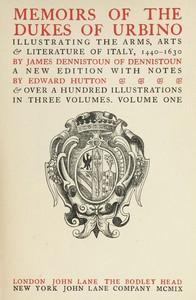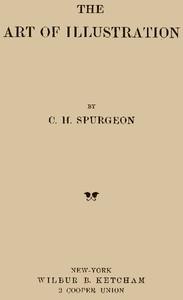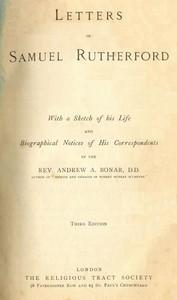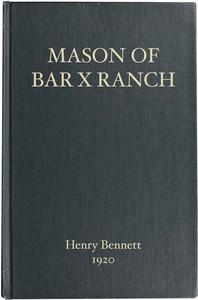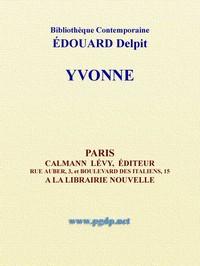|
|
Read this ebook for free! No credit card needed, absolutely nothing to pay.Words: 177607 in 28 pages
This is an ebook sharing website. You can read the uploaded ebooks for free here. No credit cards needed, nothing to pay. If you want to own a digital copy of the ebook, or want to read offline with your favorite ebook-reader, then you can choose to buy and download the ebook.

: Memoirs of the Dukes of Urbino Volume 1 (of 3) Illustrating the Arms Arts and Literature of Italy from 1440 To 1630. by Dennistoun James Hutton Edward Editor - Renaissance Italy; Urbino Dukes of; Nobility Italy History; Urbino (Italy) Italy@FreeBooksWed 07 Jun, 2023 The state which had thus been by degrees extended over much of Romagna and La Marca constituted the Duchy of Urbino, and received no further increment of territory. It contained seven episcopal cities, a number of smaller towns, and some three or four hundred "castles," by which must be understood fortified villages, for in that land of interminable contests, every hamlet became a stronghold. Penna da Billi was the original capital of Montefeltro. S. Leo, in the same wild and rugged district, was by nature one of the most impregnable fortresses in Italy; yet we shall have to detail its capture by surprise or treachery on three several occasions. Fano, with its small circumjacent territory, though nearly in the middle of the duchy, continued to hold directly of the Church. It would be quite foreign to the object of this work were we to pause on a preliminary research into the remote antiquities of the house of MONTEFELTRO. Like many other distinguished Italian genealogical stems, it had attained vigour ere modern history dawned. Nor shall we follow tradition in its mazy attempts to trace the hardy plant from the feeble seedling, which, whether of indigenous growth, or transalpine origin, took root upon the Apennine cliffs of Carpegna. In the twelfth century it put forth three leading branches, distinguished as those of Carpegna, Pietra Robbia, and Monte Copiolo. Whilst the last of these gradually acquired an important sovereignty, and earned undying distinction in Italian history, the eldest, less favoured by energy, talent, or opportunity, forcibly recals the unprofitable servant in the parable. The Counts of Carpegna continued to hold their tiny mountain fief, with its sovereign jurisdiction, in such utter insignificance, that their names gained no note during the centuries of turmoil which passed over them. Their eagle nest sent forth no eagle spirits. After the peace of 1815, the Camera apostolica, anxious to abolish privileges no longer consonant to the altered policy of Europe, bribed the Count with 300,000 scudi to surrender the entire fief, with all its jurisdictions and immunities, and on the following day disposed of the allodial estates for one-fifteenth of that sum. "Who op'ed Faenza when the people slept," he made similar overtures for the betrayal of Forl?, which were accepted by order of the Count. On a stipulated day, in May, 1282, one of the gates was abandoned to the besiegers, the garrison withdrawing by another port as these entered. Delighted with their bloodless conquest, and deceived by the apparent cordiality of the citizens, the advanced guard threw aside their arms, and committing their horses to the charge of the inhabitants, prepared to enjoy the spoil. Meanwhile Guido, whom they supposed in full retreat, fell upon and dispersed their reserve who were posted in the plain; he then formed his infantry in the position which the enemy had occupied, and reentering the town with a division of cavalry, surprised the captors, who, unprepared for resistance, fled to their rendezvous, where they fell an easy prey to the Ghibellines at the moment they looked for support from their friends. The success of this stratagem equalled its dexterity, and long was the fatal day remembered, which "Piled in bloody heap the host of France." The Guelphic party were roused to fresh efforts, though rather of gold than of steel: within a year, Forl? and Meldola had been surrendered to Gianni by their inhabitants, and in 1286, Guido, having made his peace with the Pope, was absolved from excommunication. But to the point which more especially regards our subject, the feuds between Boniface and the house of Colonna. The validity of his election had been early questioned, and was long disputed, on the ground that the rights of his predecessor, as a legally chosen pope, were indefeasible by abdication. Such doubts, it may be well conceived, the fiery spirit of Boniface could ill brook, and upon a rumour that two cardinals, sons of Giovanni Colonna, had been heard to express them, he at once summoned them to his presence to state their opinion upon that delicate point. This was in 1296, after the Pontiff's fierce character had been amply developed by a reign of two years; and these cardinals instantly withdrew from Rome to the strongholds of their family, from whence they issued an answer, respectfully avowing their misgivings as to the matter in question, and offering to submit them to the decision of a general council. But their flight, and the delay of a few days, had been construed by the haughty Vicar of Christ as acts of contumacy; and even before their offensive manifesto reached him, he had directed the thunders of the Church against the two Colonna, visiting on their devoted heads the accumulated offences of all their line, without allowing them an opportunity of explanation or defence. The bull of excommunication proceeds, with more than wonted elaboration of abusive epithets, to designate the obnoxious race, as "detested by their dependants, troublesome to their neighbours, enemies to the community, rebels against the Church, turbulent in the city, fractious to their allies, thankless to their benefactors, unwilling to obey, incapable of command, devoid of humility, agitated by passion, fearless of God, regardless of man." A general proscription of their whole family and adherents, and a sequestration of their vast property, was followed up by the siege of Palestrina, their principal fief. Finding his exertions unequal to the reduction of that fortress, Boniface bethought him of the military experience of the old Ghibelline monk of Montefeltro, and demanded of him counsel, silencing his religious scruples by a preliminary absolution for the sin of reverting to worldly schemes. Thus pressed, Count Guido advised recourse to deceitful promises as the surest means of conquest; and "the bard of hell," who is an authority for this passage in his life, hence consigns him to the doom of an impenitent sinner. But let us hear the poet, through the version of Carey:-- "When joy of war and pride of chivalry Languished beneath accumulated years, Had power to draw him from the world." "Our beloved son, the noble Count Guido of Montefeltro, has repeatedly conveyed to us personally, and through credible informants, his wish, desire, and intention, after communing with his own heart, to end his days in God's service, under the monastic habit, as a means of effacing his sins against Him, and the mother Church of Rome; and this with the full assent of his wife, who is said to be willing to take upon herself the vows of perpetual chastity. We, therefore, commending in the Lord his devotional aspirations, which seemed disposed in all prudence to admit the spirit of counsel, and in order to the more free fulfilment of his vow,--will that his household be paid out of what movables he possesses, and that he assign to his wife from his real estate as much beyond the amount of her dowry as may give her a hundred pounds in Ravenna currency yearly, during her life, a divorce having been first duly pronounced between them, in the form customary and becoming when a vow of chastity has been undertaken. And we further desire that all such personal effects as may remain, after remunerating his attendants, shall be securely deposited, and lie in the hands of responsible persons in the meantime, until we shall come to further resolutions regarding the real and movable property which he now has. And further, as the advanced age of his consort places her beyond suspicion, it is our will that she have leave to remain in her present position, if she cannot be persuaded to a monastic retirement." After conferring on the Superintendent the authority requisite for carrying these resolutions into effect, the Pope concludes by desiring that it be left to the Count's unbiassed decision, whether he will enter one of the military orders, or adopt the more rigid rule of the friars minor of St. Francis. This letter is dated from Anagni the 23rd of August, 1296. The option thus given him in no way shook his intention of conforming to the ascetic rule of "poverty and Francis:" and although his Countess Costanza did not follow his example by assuming the monastic vows, she passed the eight remaining years of her worldly pilgrimage in the not less strict seclusion of Santa Chiara at Urbino, a convent especially favoured by her posterity, and of such rigid discipline that the nuns went barefoot and wore no linen, rising habitually at midnight, and but once a year permitted to approach the grating in order to see their nearest relatives. Her lord's remaining life was of shorter span, as he died at Assisi on the 27th of September, 1298, and is said to have been interred in the church there. That his courage was not unmingled with cunning seems established rather by some incidents in his life than by the bitter lines of the Ghibelline bard; that his piety was shadowed by superstition is a conclusion suggested by the closing scenes of his life, and still more by his most stirring years having bent to the slavish control of astrological quackery to a degree exceeding even the darkness of his age. His zeal founded the family chapel, which may yet be seen in the lower church at Assisi,--its frescoes cruelly defaced; and the devotion of his family was long after specially directed to the service of St. Francis and Santa Chiara. The death of Count Antonio was announced to the government of Siena by his son, in terms which, exceeding the formal expression of ceremonious regret, afford a pleasing specimen of official intercourse in early times. The original, in rude Latin, is preserved in the Archivio Diplomatico at Siena. "To the mighty and potent Lords and special Fathers, the Lords Priors, and Governors of the people and city of Siena. "Mighty and potent Lords, special Fathers; I should gladly communicate news more pleasant both to your magnificences, whose true and unwavering son I am, and to myself; but whatever they may be, they ought to be freely reciprocated where there exists true strength of affection, and intact purity of friendship, in order that such guileless amity may rejoice with a friend in prosperity, and may sustain, support, sympathise with, or even defend him in misfortune. And being made aware by information from others, as well as by personal experience, of the sincere affection and mutual interchange of favours continued between your progenitors and my own, I have decided, with tearful words, bitter sighs, and sad wailings, to inform your magnificences, to whom I faithfully commend myself and state, how, on the 29th of last April, the potent Lord my father, of unfading memory, yielded his noble spirit to the Almighty Creator of all, paying the timely but, alas, unavoidable debt, and separated from the flesh by force of fever, after disposing of his worldly affairs, and receiving the holy eucharist and other sacramental rites of our religion, with a mind distinct to his last hour. Ah me! wretched and afflicted, doomed to such distress! Dearest fathers, the loss of such and so great a parent torments and agitates me; what and how eminent a son have you and your community lost in him. It is indeed beyond the power of nature herself to replace to your magnificences one of greater or even equal affection, or to supply such a father to me who fain would imitate him. For he curtailed my cares, relieved my sighs, appeased my fears, cleared my entanglements. One only consideration soothes and mitigates my mental affliction, and the grief that envenoms my heart, that since fate has bereaved me of such a parent, it may find for me another in you, magnificent fathers, whom I heartily beseech to assume a paternal care of me your child, and of my state, and to counsel me in my affairs as a steady son, who will in no way abandon these recollections, and my paternal associations. Prepared for all compliance with your wishes, your magnificences' son, Free books android app tbrJar TBR JAR Read Free books online gutenberg More posts by @FreeBooks
: The Art of Illustration by Spurgeon C H Charles Haddon - Preaching; Homiletical illustrations@FreeBooksWed 07 Jun, 2023

: Letters of Samuel Rutherford (Third Edition) by Rutherford Samuel Bonar Andrew A Andrew Alexander Editor - Rutherford Samuel 1600?-1661 Correspondence@FreeBooksWed 07 Jun, 2023
|
Terms of Use Stock Market News! © gutenberg.org.in2025 All Rights reserved.

